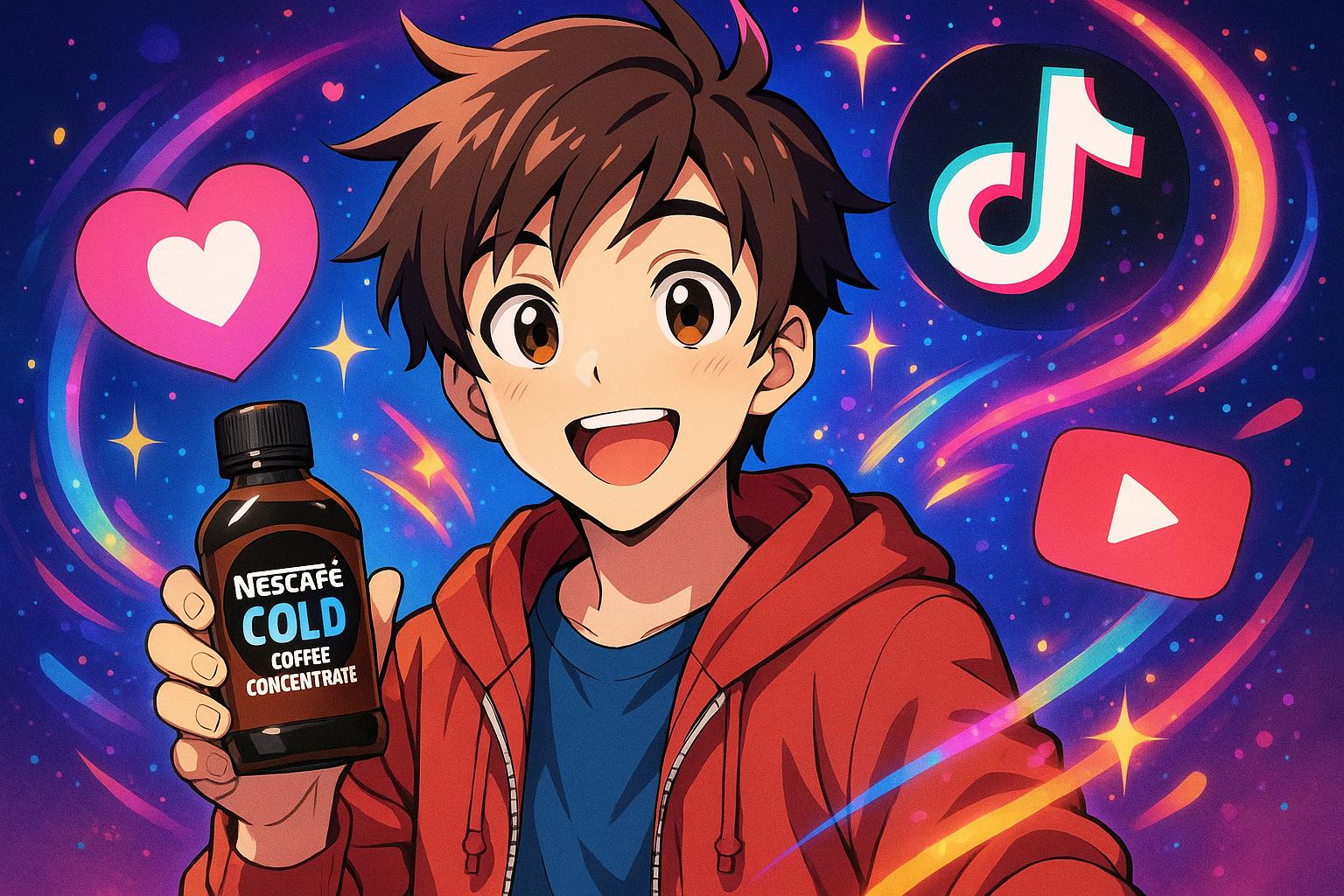Nescafé is embarking on a fresh initiative to captivate the interests of younger coffee drinkers. As the brand navigates the changing landscape of consumer engagement each decade, it recognises the necessity of evolving its marketing strategy. Past efforts have ranged from lively television advertisements to a more avant-garde approach in 2015, which involved transitioning its entire online presence to Tumblr. Now, Nescafé is shifting its focus towards a more established avenue of marketing: influencer collaborations.
According to Zenas Liritis, Nescafé’s global communication manager, while social media is an integral part of its marketing mix, the brand faces challenges in effectively cultivating its digital channels. The company’s global Instagram account, for instance, has only managed to make 15 posts since its launch in 2020. In contrast, Nescafé's TikTok channels in the US and UK, which boast around 10 million followers each, are underperforming compared to their counterparts in the Asia-Pacific region, particularly Vietnam, where an impressive following of nearly 250 million has been amassed.
Historically, Nescafé has allocated limited resources to influencer marketing, yet the brand acknowledges the growing importance of this strategy. Liritis emphasises that influencer marketing has become increasingly critical for engaging audiences and fostering recommendations. He points to the significant shifts occurring within fast-moving consumer goods (FMCG) companies, as illustrated by Unilever’s new CEO announcing plans to dedicate up to 50% of its marketing budget to influencer collaborations.
"Influencer marketing is important and FMCG companies are realising that," Liritis remarks, indicating that while Unilever’s aggressive approach is compelling, Nescafé’s strategy will remain carefully aligned with its broader marketing objectives. This involves a combination of local and global initiatives—a strategy exemplified by the brand's recent partnership with TikTok sensation Zach King. Over the coming year, King will lead a series of advertisements across television, out-of-home, and video formats while also creating engaging content to promote Nescafé’s cold coffee concentrate, tailored specifically for consumers aged 18 to 24.
Zach King, renowned for his imaginative short videos showcasing “magic tricks,” holds the record for the most viewed TikTok video, amassing an astounding 2.2 billion views. Alongside his 82 million followers on TikTok, he enjoys substantial audiences on Instagram and YouTube, further enhancing his appeal to marketers looking to reach younger demographics.
Nescafé’s approach with King marks a significant milestone as it endeavours to blend global influencer marketing with local execution. Liritis notes this dual strategy is crucial for driving relevance, hinting that further collaborations with local creators will likely unfold as the campaign progresses. "So Zach King is a first for us in the sense that we’re working with an influencer that has an appeal that goes beyond geographies," he explains.
This evolving influencer strategy is not solely confined to King and his global reach. Nescafé's recent campaigns have seen success by engaging local creators to drive interaction, such as the 'Cappuccino Range' campaign, which yielded a significant engagement rate of 4.19% from 540,000 influencer followers through a partnership with 38 creators. Additionally, the 'Pour It, Mix It, Hack It' campaign collaborated with Gen Z influencers to encourage consumers to personalise their coffee experiences, tapping into trending TikTok hack culture.
Nescafé's marketing is also underpinned by a broader commitment to sustainability through its Nescafé Plan 2030, which aims to source a substantial portion of its coffee using regenerative methods while improving the livelihoods of coffee farmers.
As Nescafé navigates this crucial transition, Liritis acknowledges the need for internal reflection on how the marketing team can be structured to support these initiatives. "It is a question that we need to ask ourselves and that we need to figure out, because there is the component of how you manage the global strategy, global influencers, that also gets executed locally. That’s something that needs to be thought of," he admits, hinting at future developments.
This careful blending of local and global influencer marketing represents Nescafé’s strategic pivot as it seeks to resonate with a younger audience, ensuring its storied brand continues to thrive in a rapidly evolving marketplace.
Reference Map
- Paragraphs 1, 2, 3, 4, 5, 6, 7
- Paragraph 4
- Paragraph 4
- Paragraph 6
- Paragraph 5
- Paragraph 5
- Paragraph 7
Source: Noah Wire Services
